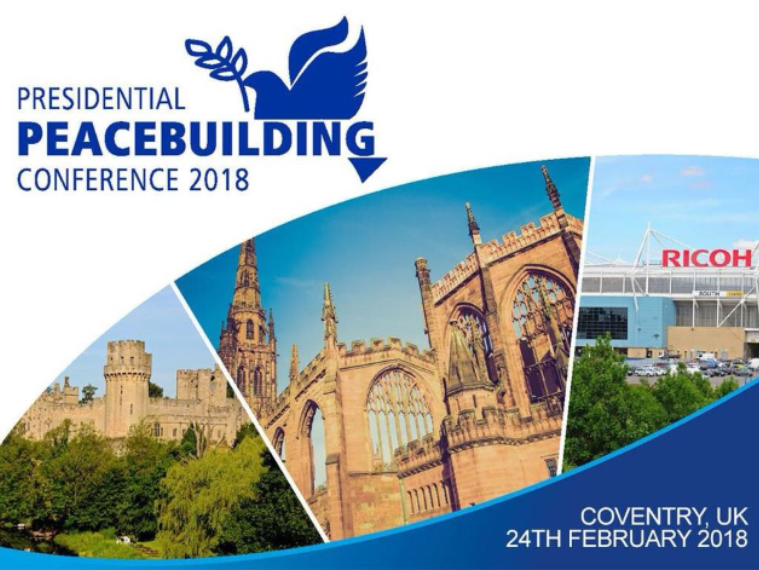 During 2018 a series of peace conferences are taking place around the world. Each is related to one of Rotary’s six areas of focus. The Coventry one focussed on the relationship between peace, and disease prevention and treatment. From our club, Victoria, Archana and I attended but several other Maidenhead Rotarians were also there. The day involved a very early start, and I must confess that on the train I wondered whether the day would be worth the effort! It certainly was! I had not appreciated that this was a global event. Neither had I quite realised the resources which Rotary can call on. I cannot envisage another situation where I would have the chance to hear from a Nobel Prize winner, a WHO expert and an academic on intercultural relations, in one day. The agenda was divided between plenary and smaller group sessions. In the breaks there were stalls about different topics – Rotary Foundation (our own charity), Rotary Action Groups related to health topics such as malaria, and those focussing on charities like the Jaipur Limb Project. It is impossible for me to pick out the best parts – because the day was of a very high standard. A few moments have stayed in my mind are as follows. A Polish Rotarian quoted Paul Harris who (apparently!) said “Working together there is no limit to what you can achieve”. We heard how important it was to engage local people in decision making about their own communities, and to be adaptable to local situations. A common theme was that every Rotary project that helped with water, health care or similar basic needs was also working towards peace. Even if it seemed relatively small, every contribution made a difference. The issue of safety came up. I had never considered that health workers would be among those killed, in man-made (and natural) disasters, and the community would have lost their expertise at a time when it was most needed. It is noticeable that the countries where polio cases are still occurring, are those where it can be dangerous to carry out vaccination programmes. This was really brought home to me when one of the hugely impressive young peace scholars talked about how they had made risk assessments. She said local conditions must be understood, and that even the choice of vehicle and what was written on it mattered, to ensure one was recognised as being truly neutral. Dr Guerra from the WHO gave profuse thanks to Rotary for its commitment to ending polio. He quoted Bill Gates who said “Rotary continues to be the heart and soul of polio eradication”. We heard that the End Polio Now campaign was a great example of successful cooperation between Rotary and several other agencies. Also PolioPlus has provided infrastructure that can be used for other crises – as it was during the Ebola outbreak. The Iranian lawyer Shirin Ebadi (Nobel Peace Prize 2003) said the main reason that dreams are not fulfilled is fear of failure, but any setback could be the prelude to bigger victory. “Before a leap you take a step back, so you can leap higher.” She emphasised that to tolerate each other we must first know each other, and that peace was a culture that has to be taught from childhood. At the end I felt a mixture of optimism, gratitude for living where and when I do, and mental exhaustion at the sheer volume of information and new ideas to which I had been exposed. It was a remarkable experience and I am so glad I decided to go. “Words without deeds are dead – we as Rotarians bring them to life.”
0 Comments
Leave a Reply. |
AuthorWrite something about yourself. No need to be fancy, just an overview. Archives
June 2024
Categories
All
|

 RSS Feed
RSS Feed